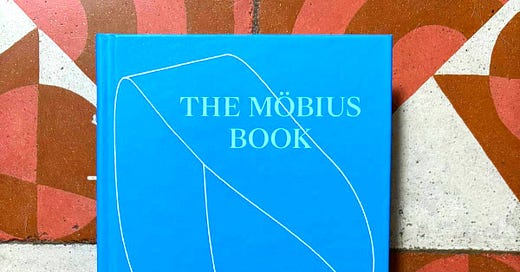Excerpt from THE MÖBIUS BOOK
On the recursive nature of faith in other people, gods, and things.
I’ve been posting a lot about THE MÖBIUS BOOK, as it’s nearly publication time (6/17/25); below is an excerpt from the nonfictional half of the book.
If you’re in New York — I have an event with Leslie Jamison at McNally Jackson Seaport on Monday June 16 and another event at Greenlight Books in Ft. Greene on Tuesday June 17 with Molly Young. If you’re upstate, I’m doing at reading on June 18 at Left Bank in Catskill, NY. More events in August and October, tba.



